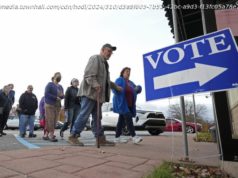Tensions at the university have surged in the days since the Confederate statue was toppled by protesters. On Saturday, the anger boiled over in demonstrations on campus.
Seven people were arrested on Saturday at the University of North Carolina at Chapel Hill as tensions between demonstrators intensified over the toppling this week of the “Silent Sam” statue, which stood for over a century on campus grounds as a symbol of the Confederacy.
University officials had warned students on Friday about the possibility of more protests, writing in a message to students, “We urge you not to attend.” But on Saturday, packs of demonstrators supportive of the monument’s removal clashed with protesters advocating its preservation. Some demonstrators carried signs condemning racism; others had draped themselves in Confederate flags.
Of the arrests made on Saturday, two were connected with charges of assault, destruction of property and inciting a riot, Carly Miller, a spokeswoman for the university, said in a statement.
Three other arrests were in connection with assault, Ms. Miller said. The remaining two arrests were related to destruction of property and resisting an officer.
None of the people arrested on Saturday were affiliated with the university, Carol L. Folt, the university chancellor, told reporters.
More than 100 people showed up for Saturday’s rally, which was often highly charged and posed a safety risk for people in the area, Dr. Folt said. “There were very tense moments with the potential for injury and escalation,” she said.
At one point, some demonstrators tried to light a Confederate flag on fire until the police intervened, according to video from The Daily Tar Heel, the university’s student newspaper.
Tensions have risen on the campus since Monday night, when protesters gathered around the “Silent Sam” statue and brought it to the ground. There was one arrest on Monday, in connection with resisting arrest and concealing one’s face during a public rally, Ms. Miller said.
On Thursday night, the university’s police force filed charges against three people, who were not identified but were said to be unaffiliated with the university, in connection with the toppling of the monument.
Randy Young, a spokesman for the university’s police force, said on Friday that additional charges might be filed against people involved in the demonstration on Monday.
The statue, unveiled in 1913 with support from the United Daughters of the Confederacy, depicts a Confederate soldier grasping a rifle. The soldier is considered “silent” because he has no ammunition to fire his weapon.
For students and community members who want the 105-year-old statue to remain off its pedestal, the monument was an emblem of white supremacy and bigotry.
The university has indicated in the past that it favors removing the statue for safety reasons, but U. N. C. officials have said a 2015 state law prohibits them from doing so. According to the law, state-owned monuments cannot be removed or altered in any way without the approval of the North Carolina Historical Commission.
Two days after the demonstration, the commission rejected a request to remove three Confederate monuments from the State Capitol in Raleigh.
While some university leaders and Republican state lawmakers have condemned the demolition of the “Silent Sam” statue, the university has not disclosed any plan to reinstall it.
According to the 2015 law, any monument that is “temporarily relocated” must be returned to its original place within 90 days of “completion of the project that required its temporary removal.” Dr. Folt told reporters on Saturday that it was too early to know where the statue would end up, although she mentioned the possibility of moving it to another location.
Confederate monuments have come under heightened scrutiny since 2015, when a white supremacist murdered nine black churchgoers in Charleston, S. C. A month later, South Carolina lawmakers removed a Confederate battle flag from outside the State House.
Last year, a white nationalist rally that turned violent in Charlottesville, Va., revived national attention to Confederate monuments, with some lawmakers calling to remove them from public grounds. Officials at other universities — like the University of Texas at Austin and Duke University — have felt enough public pressure to remove such monuments themselves.






